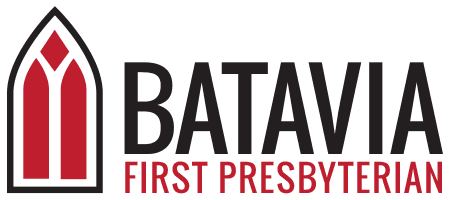
You Were Made for a Miracle: Miracles Come with a Cost
“You Were Made for a Miracle: Miracles Come with a Cost”
Luke 9:57-62
American author Zig Ziglar wrote: “My brother, the late Judge Ziglar, loved to tell the story of the fellow who went next door to borrow his neighbor’s lawnmower. The neighbor explained that he could not let him use the mower because all the flights had been canceled from New York to Los Angeles. The borrower asked him what canceled flights from New York to Los Angeles had to do with borrowing his lawnmower. ‘It doesn’t have anything to do with it, but if I don’t want to let you use my lawnmower,
one excuse is as good as another.’”
Excuses are what we often use to justify our action or inaction. They help us justify our behaviors or habits without having to tell the truth. Yet, excuses come from the wrong motivation. They come from our false self which we try to protect because it is often very fragile. Excuses are like the protective layer of false narratives we surround ourselves with in order to feel good or secure. I thought of one Super Bowl commercial of how we often live with a protective layer which is our false self: https://youtu.be/q8SOT9fCTfM
Our excuses often deprive us from living as God’s miracles where love abounds. They may keep life safe and predictable, but they also keep it small and inauthentic. If we want to live the faithful life of a disciple of Jesus, we have to practice each day letting go of all the things that limit us.
In our Bible story from Luke 9, Jesus is focused on heading to Jerusalem. This was the culmination of his ministry. There was no turning back at this point. He knew of the monumental resistance he was going to face there and knew about the importance of being grounded and committed to God’s mission. On the way to Jerusalem, Jesus encountered three would-be disciples/followers. But their level of commitment was not up to what was needed for the task ahead. The first one was eager and wanted to follow, but the potential risk for him was too high. Jesus was not trying to scare this enthusiastic man away. He was simply trying to describe the reality of the cost of following him into Jerusalem. He wanted him to think twice before joining the movement. Even the wild animals have some comforts which the followers of Jesus don’t. The path of Jesus is that of downward mobility and most of us would rather not go there because it seems like a major loss to us.
The second man Jesus encountered on the road had potential. Jesus invited him directly to follow him. (Luke 9:59-60) But the man had an important duty. He had to go and bury his father. Even Pharaoh, the king of Egypt, seemed to be more understanding than Jesus. In Genesis 50:6, when Joseph asked for time off to go bury his father, Pharaoh granted it, (screen verses). But Jesus seemed to not allow for such an excuse. There was no room on the journey to Jerusalem for delays to take care of other obligations.
The third man Jesus encountered on the road also wanted to follow Jesus, but he wanted some time to say goodbye to his family. Again, we may think, “another reasonable request.” However, Jesus didn’t think it was in light of the urgency of the situation at hand.
In all three cases, Jesus seemed to be a little too demanding of these would-be followers. Writer and preacher Fred Craddock summarized Jesus’ responses this way, (screen) “One who has set his face like a firm stone to go to Jerusalem has no bargains to offer.”
Jesus understood our tendency to avoid doing the hard work of letting go of the false-self protections and agendas. He knew that at first people were eager to follow him but were not deep enough in their letting go to fully follow him. Churches are sometimes guilty of sugarcoating or ignoring the demands of discipleship. We could get caught up in believing that religion is just a side activity, much like a hobby, that makes us feel better or be better in society. We make excuses for not taking the time and energy for contemplative prayer, worship, and service. Therefore, we miss out on the best part of following Jesus. This is like trying to run a marathon by going to the gym once a week or giving up bad food for a day or two a month. Then we wonder why things are not being transformed in our lives. Back to the magic mindset about miracles! Spiritual maturity and depth do not come from living by the values of the culture around us and then sprinkling some faith on our lives.
Living into the powerlessness which we talked about last week where miracles abound, comes at a cost. It changes our priorities, schedules, relationships, and how we use our resources. Sometimes we have to go into extreme discomfort (way outside of our comfort zones) before we can release the illusions of our lives. There is a healing center in South Korea that helps people find more zest for life by experiencing a mock funeral for themselves. They are led through a whole ritual of experiencing being in a coffin and how their lives will come to an end. The amazing thing is that as participants go through this experience, they discover new meaning for their lives. Once they learn to surrender to nonbeing, they discover the joy of being: https://youtu.be/rQQYEcbTUrA. I would say that it takes a lot of courage to pause and to look deeply at one’s life.
So how do we let go of the things that seem to get in the way of our ability to live as followers of the way of life? In the Christian tradition, deep prayer is the discipline that helps us to let go of the demands and fears of our ego. The deeper our prayer life, the more joy we find in life, even when the circumstances might be tough or scary. I would like to invite you to use a beautiful and helpful image from St. Teresa of Avila about the depth of prayer. In The Book of My Life, Teresa identifies 4 degrees of prayer from beginning to advanced. She called them the Four Waters. The first degree is that of a well where one has to put a lot of effort in before getting enough water for the garden. God assists beginners by pulling up the weeds and planting good seeds, but these seeds now have to be watered. Beginners in prayer are unaware of how God is always within them, Teresa contends. Thus, beginners labor to recollect their senses and tire themselves in the effort, a fact Teresa relates to drawing water from a well. After that effort, one learns the power and value of rest and letting the intellect rest so that the soul could be watered. The second degree is the prayer of the quiet and is best described by the image of a water wheel and aqueducts. There is less effort involved here and more water obtained. This is when the intellect is stilled and our desire for God is kindled. The third degree is that of a stream where less effort is required. By that point, our prayer life has matured and we are able to receive the divine gifts more freely. God is the one who becomes the gardener at that point, the one who is doing most of the work. This is the point where the active and the contemplative join together so that our awareness of the divine is not gone when we are in action mode. The fourth degree of water is that of the prayer of union. The image for that is falling rain from heaven where no personal effort is necessary. Our work is only to receive the blessing. This is when we are able to truly detach from self-interest and are able to join God’s work in the world because the soul becomes inseparable from God.
The Four Waters of Prayer: https://youtu.be/oO8fvJOJbmc
Wherever you are on the path, know that God is with you. What is important to remember is that this is not about some spiritual hierarchy because as you notice that most of the work according to Teresa of Avila is a gift of the Spirit. This is not about earning God’s love. It is instead about learning to enjoy it and live from it. Miracles abound when we are able to live out of that sense of abundance and love. We just need to show up. The cost is detachment from the security of the false self. Pray that God may give you the courage to move beyond the distractions, the excuses, and the fears to embrace the great miracle of your life. Amen.
